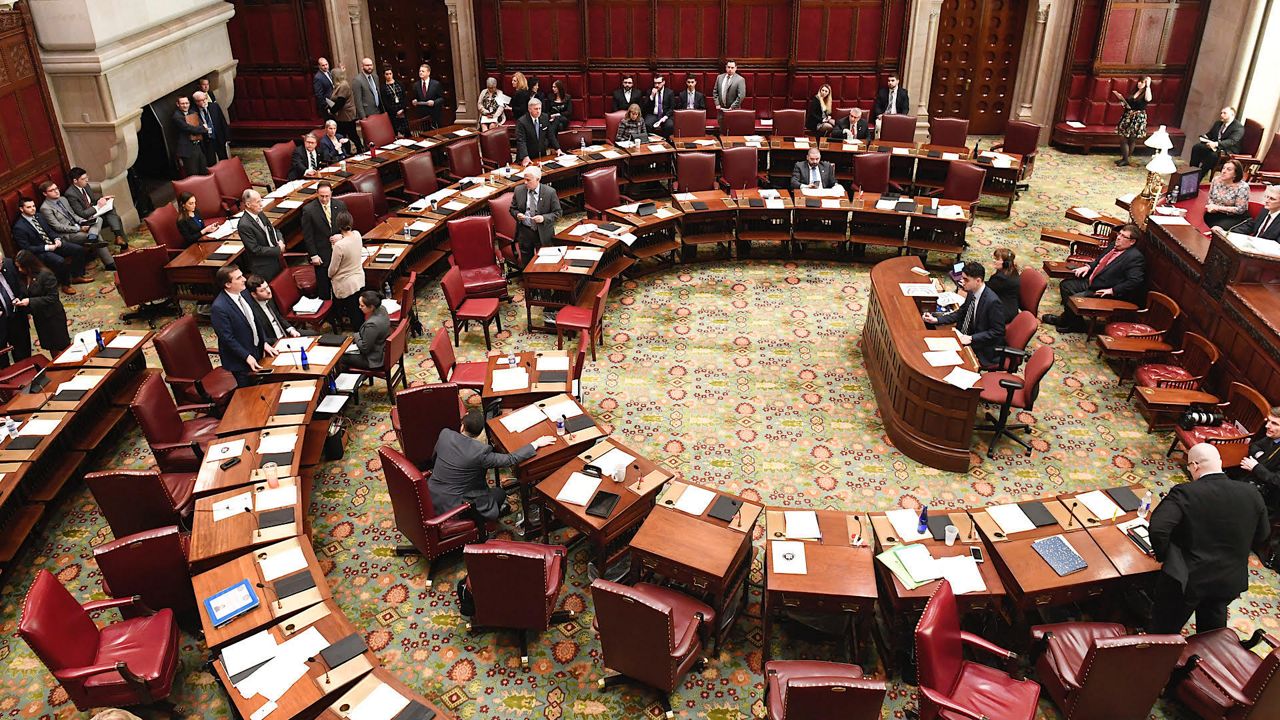Senate Democrats expect to have at least 43 members in the 63-seat chamber next year, a twin supermajority with the Democratic-led Assembly that raises the spectre of holding a veto override above the head of Gov. Andrew Cuomo.
It's potentially a tempting arrow for progressives who feel like Cuomo has run roughshod over the Legislature during his time in office to want to see used. But Democratic lawmakers interviewed on Monday said they don't expect to ever use that weapon against the three-term governor of their own party.
"It's unlikely on policy," said Sen. Diane Savino, a Democrat from Staten Island, who pointed to the conference and Cuomo largely being in alignment with one another.
"What breaks between the Legislature and the governor is the path to where we're going," she said.
Sen. Jim Gaughran, a Democrat re-elected to a second term in a battleground Long Island district, also called a veto override an unlikely step for the conference to take against Cuomo.
"I think obviously if there something that enough of us felt very strongly about I think there's always the possibility," he said. "But I think also if you look back in history vetoes are very rare and overriding a veto is even rarer."
Senate Democrats on Monday declared victory for John Mannion in the Syracuse area, flipping what had been a Republican held seat. If it holds, the party will have at least 43 members from virtually every corner of the state: Upstate cities, suburban communities, rural stretches of the Hudson Valley and New York City.
A large tent can spell trouble for any legislative conference, containing progressives who are eager for big picture policy victories as well as lawmakers who represent more politically moderate constituencies. But Democrats believe this can be a strength.
"I think it's going to strengthen our ability to represent our constitutents," Gaughran said if the supermajority. "It's going to be a much more diverse conference, a lot of new voices coming in. It's going to be more representative of the state. It's going to include people who rep suburban communities, people who represent rural communities and I think it's going to make for a stronger conference."
Savino acknowledged the supermajority will give Democrats an upperhand in negotiating with Cuomo, who after 10 years and 10 budgets is adept at getting what he wants from the Legislature.
And Democrats in the last two years have been willing to pass measures allowing undocumented immigrants to access driver's licenses as well as a sweeping rent control package that were largely legislative products.
But would the Assembly and Senate get together to pass their own spending plan, presenting end-run around Cuomo and his main lever of power in Albany? Savino also called that unlikely.
"The likelihood the Legislature is going to pass its own budget without the governor is pretty slim," she said. "I don't see that as a reality."
The state budget is where policy meets hard math, and perhaps one of the more consequential questions facing Albany next year will be whether tax rates on the wealthiest New Yorkers are increased in order to close a budget gap. The state's finances have been lit on fire by the COVID-19 pandemic, with tax revenue largely dried up.
New York is seeking billions of dollars from the federal government to plug the hole, and Cuomo has not ruled out increasing taxes on the rich, plus spending cuts, to make ends meet if the money does not come through for New York.
"The governor holds the upper hand when it comes to the budget and I think as he has before he sits down with the leaders of the Senate and Assembly and they hammer out compromises," said Jay Jacobs, the state Democratic chairman and a Cuomo ally. "I don't think that's going to change that equation. I just think that you'll just have more represetnation in the caucuses for places like Long Island and upstate."
Jacobs doesn't want Senate Democrats to get too cocky. President Donald Trump won't be on the ticket in the 2022 elections and midterm elections typically do not bode well for parties that control the White House.
"Everybody has for the most part received an education in this last election and it's built upon the education they've had with previous elections," Jacobs said. "If you want to advance progressive legislation you have to be in the majority. If you're in the majority, you have to be mindful of more moderate views of upstate and suburban districts because without them you won't have the majority that enables you to get a lot of good things done."
He added: "Getting arrogant, getting too full of oursleves is not a prescription for success in 2022."



